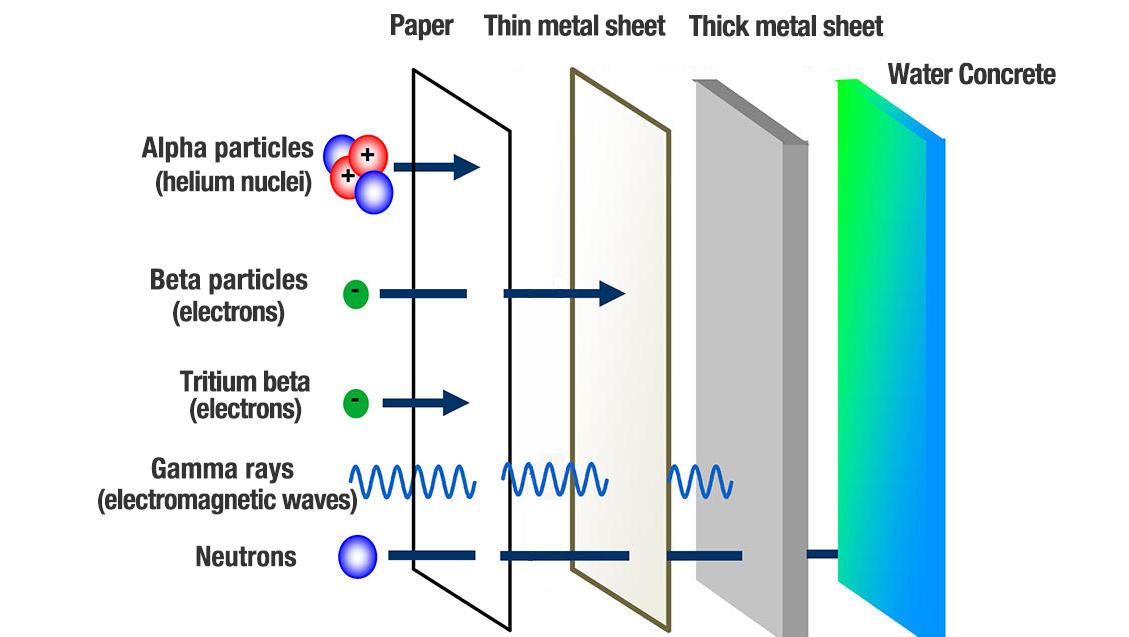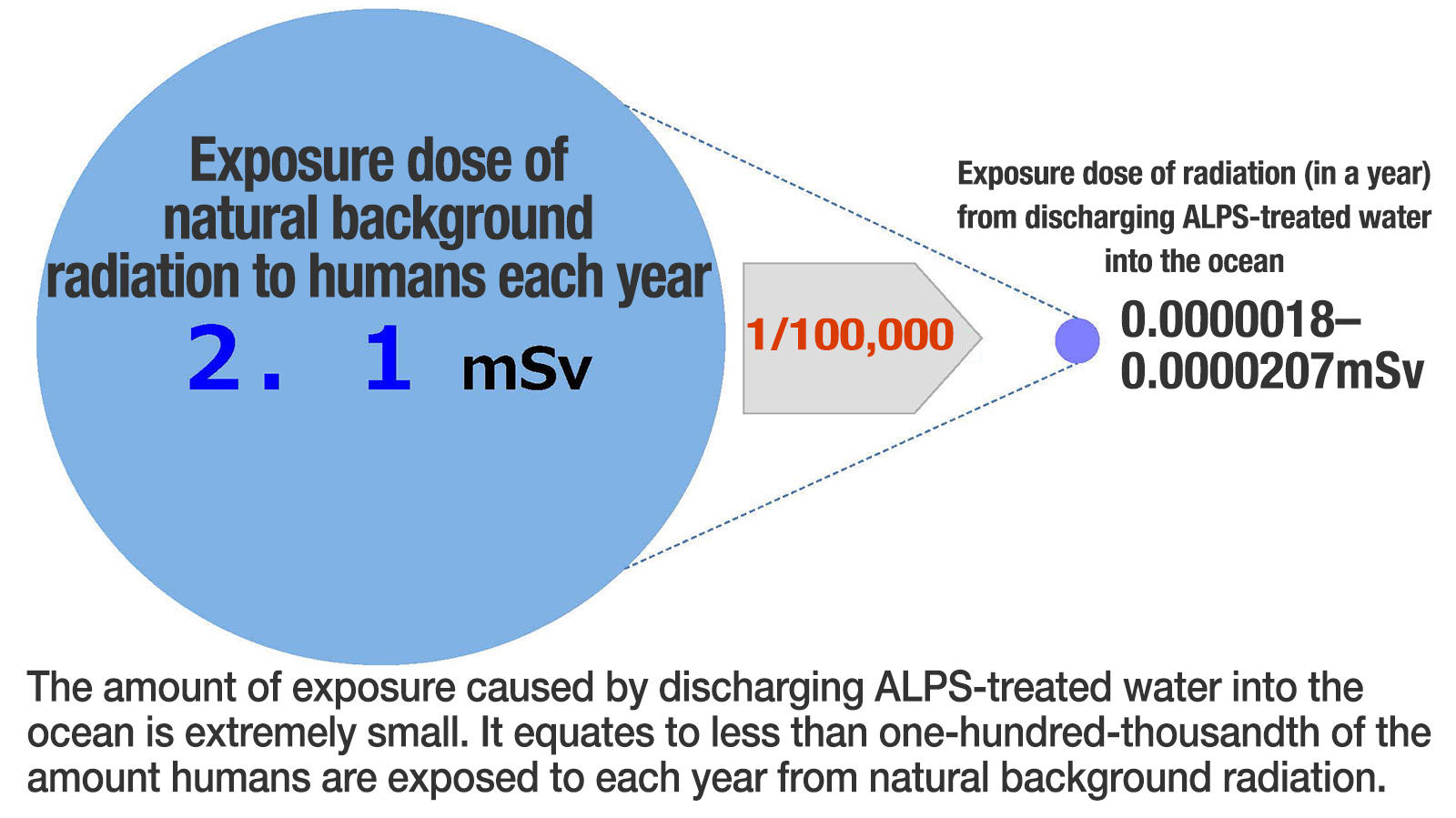FAQ
About ALPS treated water, tritium, and monitoring
QIf tritium is a radioactive substance, is
it not dangerous?
ARadiation emitted by tritium is extremely
weak, and is not dangerous provided it is within regulatory levels.
Radiation emitted by tritium is extremely weak and can only travel 5mm through air. It is also
unable to penetrate the skin, meaning there is no risk to the human body of external exposure. When
it does enter the body (through ingestion, absorption, or inhalation), it is eventually excreted
with water from the body. It does not accumulate or become concentrated within the body.
Studies conducted on animals and epidemiological studies carried out to date do not indicate that
tritium has a more pronounced effect on living things than other radioactive materials.
About ALPS treated water, tritium, and monitoring
- QWhat is ALPS-treated water? How is it different to contaminated water?
- QWhy is it necessary to discharge ALPS-treated water? Can't it continue to be stored?
- QIf ALPS-treated water is safe, why is it being stored? Surely it is only being stored because it is unsafe.
- QIs there a chance of ALPS-treated water containing other radioactive substances in addition to tritium?
- QWhat is tritium?
- QIf tritium is a radioactive substance, is it not dangerous?
- QDoes tritium become concentrated in fish? And will eating fish be dangerous?
- QWhat kind of monitoring is implemented when discharging the ALPS treated water into the sea?
- QWhen discharging ALPS treated water into the sea, what will happen if the monitoring of the local sea area indicates that the discharged water hasn't sufficiently dispersed and so on?


